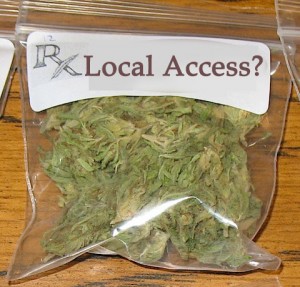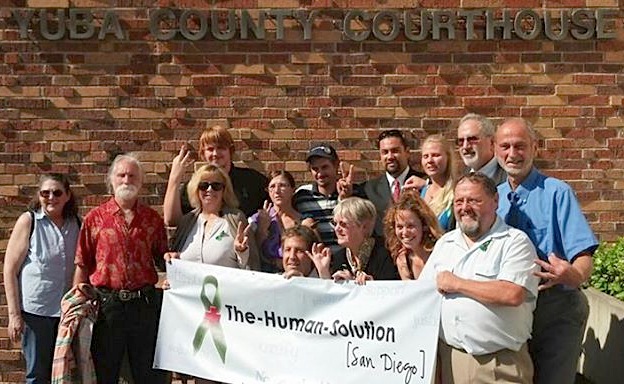By Jeremy Daw
WCL News — In response to new rules enacted in Canada allowing foreign corporations to open retail cannabis establishments, the head of the premier US cannabis brand has said that he plans to enter the Canadian market.
“Absolutely,” said Jamen Shively, co-founder and Executive Director of Diego Pellicer Inc., when asked whether he planned to enter the Canadian market.
Long known as an illicit supplier of the US market for British Columbia’s famous “BC Bud,” Canada may soon find itself awash with high-grade American cannabis, courtesy of a former Microsoft executive.
Posted in Business, FRONT PAGE, International, NEWS SERVICE | Comments
By Martin Williams
WCL News — Police in the US conducted one drug arrest every 20 seconds and one marijuana arrest every 42 seconds in 2012, according to a Federal Bureau of Investigation report released September 16, 2013. The Uniform Crime Reporting (UCR) Program report counts one arrest for each separate instance in which a person is arrested, cited, or summoned for an offense.
It shows that 82.2% of all drug arrests in 2012 were for possession only and 42.4% of all drug arrests were for marijuana possession (88% of all marijuana arrests). This amounts to almost 750,000 marijuana arrests and more than 1.5 million total drug arrests in 2012. The total represents a slight decrease from years past. During the years 2006 to 2010, police annually made over 800,000 arrests for cannabis violations.
By comparison, police made 757,969 arrests in 2011 for marijuana-related offenses, according to the annual Uniform Crime Report, released October 29, 2012.
The 2012 data shows that police have once again concentrated more effort on arresting more people for marijuana offenses than for any violent crime. This policy is troubling to Law Enforcement Against Prohibition, an organization of police, prosecutors, judges and other law enforcement officials opposed to the war on drugs. LEAP pointed to the new figures as evidence that no matter how aggressively policd conduct it, the Drug War is a war that can never be won and is pursued at a heavy cost to society as well as to other police investigations of serious crimes.
“These numbers represent a tremendous loss of human potential. Each one of those arrests is the story of someone who may suffer a variety of adverse effects from their interaction with the justice system,” said LEAP executive director Neill Franklin, a veteran police officer for 34 years. “Commit a murder or a robbery and the government will still give you a student loan. Get convicted for smoking a joint and you’re likely to lose it. This is supposed to help people get over their drug habit?”
“Every time a police officer makes an arrest for drugs, that’s several hours out of his or her day not spent going after real criminals,” added retired lieutenant commander Diane Goldstein, another LEAP speaker. “As the country has been investing more and more of its resources into prosecuting drug ‘crime,’ the rate of unsolved violent crime has been steadily increasing. Where are our priorities here?”
Law Enforcement Against Prohibition (LEAP) is a group of more than 100,000 law enforcement officials and other supporters who, after fighting the war on drugs, now advocate for its end.
Posted in FRONT PAGE, LEGAL ISSUES, National, NEWS SERVICE, POW Updates | Comments
By Betty Aldworth, National Cannabis Industry Association
WCL News — Representative Earl Blumenauer (D-OR), Americans for Tax Reform (ATR) president Grover Norquist and National Cannabis Industry Association executive director Aaron Smith held a press conference to mark the release of a new white paper from ATR entitled Legal Cannabis Dispensary Taxation: A Textbook Case of Punishing Law-Abiding Businesses Through the Tax Code. The paper, published on September 12, calls for reform of Internal Revenue Code Section 280E, which essentially forces medical marijuana providers to pay taxes based on gross receipts rather than income, unlike all other small businesses.
 Additionally, the paper details Americans for Tax Reform’s endorsement of H.R. 2240, the Small Business Tax Equity Act, introduced earlier this year by Rep. Blumenauer and strongly supported by the National Cannabis Industry Association. Mr. Norquist also sent a letter explaining his support for H.R. 2240 to House Ways and Means Chairman Dave Camp.
Additionally, the paper details Americans for Tax Reform’s endorsement of H.R. 2240, the Small Business Tax Equity Act, introduced earlier this year by Rep. Blumenauer and strongly supported by the National Cannabis Industry Association. Mr. Norquist also sent a letter explaining his support for H.R. 2240 to House Ways and Means Chairman Dave Camp.
Smith spoke out strongly against the current enforcement of 280E, which he called “a leftover relic in the tax code that was never intended to apply to small businesses complying with state laws.” Rep. Blumenauer decried the treatment of state-legal cannabis businesses under federal tax laws, noting that “they cannot deduct their business expenses like all other businesses. Then cannot claim advantages like the work opportunity tax credit if they hire a veteran. And they cannot depreciate their American-made irrigation equipment.”
The issue is a classic case of national politics making for strange bedfellows. Blumenauer represents Oregon’s 3rd district, which includes the famously liberal-leaning city of Portland; Norquist rose to fame as the lobbyist who peppered the US Capitol with the Tea Party-inspired pledge not to raise any taxes in the first term of the Obama administration. Yet both men have put aside their erstwhile differences to support the cause of cannabis tax reform. And with the latest Pew Research poll showing strong support for cannabis reform across both major political parties, such bipartisan efforts are likely to only increase for the foreseeable future. — West Coast Leaf News Service
Posted in FRONT PAGE, LEGAL ISSUES, NEWS SERVICE | Comments
By Betty Aldworth and Darby Beck
WCL News – Deputy US Attorney General James Cole told a Senate Judiciary Committee hearing on September 10, 2013 that in states where marijuana has been decriminalized or made legal, implementing a strictly regulated system in which cannabis is sold is the only way to prevent criminal activity such as diversion to youth and across state lines and empowerment of criminals and cartels. Cole did not challenge states’ rights to make their own drug laws, only restated the federal government’s right to challenge their regulatory schemes in pursuing certain priorities, such as preventing sales to minors, trafficking to other states, impaired driving, and increases in violence.
Committee members Senators Patrick Leahy (D-VT), Sheldon Whitehouse (D-RI) were fully supportive of the new state laws and repeatedly stated the need for greater clarification of federal policy, particularly in relation to guidelines which prohibit financial institutions, security services, landlords and others from doing business with marijuana providers. They and Senator Richard Blumenthal (D-CT) expressed concern that federal regulators’ actions to block state-legal business access to simple banking and financial services inevitably undermines the viability of the industries. Witnesses King County (Washington State) Sheriff John Urquhart and Colorado Governor’s Chief Legal Counsel Jack Finlaw testified to the same problem.
Drug War critics were glad that the hearings occurred but remain wary of the Obama Administration’s history of shifting its stance on legal use of cannabis. “While I would have liked to have seen a substantive change in policy, what we were really listening to in that hearing was the sound of a changing political climate,” said retired Seattle police chief and Law Enforcement Against Prohibition speaker Norm Stamper. “People who can’t agree on any other political issue are coming together over this one, and politicians on both sides of the aisle ignore that at their own peril.”
When Whitehouse brought up the federal government’s conflicting instructions on marijuana enforcement in the past, Cole merely affirmed the government’s right to intervene on a case-by-case basis.
The hearing drew attention to a growing consensus among legal cannabis regulators, law enforcement officials, and business professionals that allowing access to banking services is now the most pressing obstacle to the success of the regulated marijuana industry in the states where it is legal for medical or adult use and ensuring the eight federal enforcement priorities outlined in an August 29, 2013 Department of Justice memo can be upheld.
“We need to address the [banking situation] and we are working on it,” said Cole, who indicated the DOJ is conferring with the Treasury Department’s Financial Crimes Enforcement Division to resolve the issue. He said that they were working to establish regulations for financial institutions, landlords would be protected, and iterated that the DEA had merely asked questions of armed car and other security services, and had not issued an injunction forbidding them from working with marijuana businesses.
National Cannabis Industry Association Director Aaron Smith expressed relief that DOJ is “is finally taking seriously the dangers that a lack of access to simple banking services poses to consumers, employees and business owners. We are encouraged that the growing consensus among essentially all stakeholders is that banking access must be available to legal businesses. It portends a quick reform to this dangerous and unnecessary situation.”
“It feels like there’s a paradigm shift underway in the Justice Department’s interpretation of federal drug control law,” said Ethan Nadelmann, executive director of the Drug Policy Alliance. “They seem to recognize that drug control should be first and foremost about protecting public health and safety, and that smart statewide regulatory systems of the sort that Colorado and Washington are proposing may advance those objectives better than knee-jerk enforcement of federal prohibitions.”
Nadelmann pointed out that Senator John McCain (R-AZ) recently made headlines when he said, “Maybe we should legalize [marijuana]. We’re certainly moving that way as far as marijuana is concerned. I respect the will of the people.” Senate Judiciary Chairman Patrick Leahy (D-VT) has said the federal government “ought to respect” states that legalize and regulate marijuana. Senator Rand Paul (R-KY) has suggested decriminalizing all drug users, including marijuana users.
Dan Riffle, director of federal policies for the Marijuana Policy Project, added that “We applaud Sen. Leahy and the committee for initiating a much-needed dialogue about our nation’s failed marijuana prohibition laws. We hope this discussion will inspire Congress to take action and make the Department of Justice policy the law of the land. Congressman Dana Rohrabacher (R-CA) has introduced legislation that would leave marijuana policy up to the states, and we call on members of the committee to consider similar legislation.
“Marijuana is an objectively less harmful substance than alcohol, and most Americans do not believe adults should be punished for using it,” Riffle noted. “Voters and state legislators are poised to approve laws similar to those adopted in Colorado and Washington. The administration is doing its best to work around federal law, but a better approach would be to simply fix federal law and permanently resolve this conflict.”— West Coast Leaf News Service
Posted in Business, FRONT PAGE, LEGAL ISSUES, National, NEWS SERVICE | Comments
By Martin Williams
WCL News — A new federal review and report has illuminated the failures of prohibition as a tool for controlling drug use. Despite hundreds of thousands of arrests and billions of dollars spent to reduce marijuana supply and demand, usage rates remain relatively unchanged while support for legalization has grown by leaps and bounds.
 The Office of National Drug Control Policy (ONDCP) released its annual National Survey on Drug Use and Health on Nov. 4, 2013, along with the Substance Abuse and Mental Health Services Administration. In the wake of the longest, broadest and most sustained attack in US history against the cannabis plant and its consumers, medical and otherwise, currently being waged by the Obama administration, social use has become more accepted and actually increased.
The Office of National Drug Control Policy (ONDCP) released its annual National Survey on Drug Use and Health on Nov. 4, 2013, along with the Substance Abuse and Mental Health Services Administration. In the wake of the longest, broadest and most sustained attack in US history against the cannabis plant and its consumers, medical and otherwise, currently being waged by the Obama administration, social use has become more accepted and actually increased.
Despite the blanket ban being foisted by the federal government, two states voted to legalize marijuana last year and the social consensus that cannabis is for adults and not for adolescents seems to be bearing fruit. The survey documents the fact that overall past-month marijuana use increased by less than half of 1% from 2011 to 2012, and use by individuals aged 12-17 decreased by less than three-quarters of 1%. Adults age 18 and above made up for the drop in teen use and use by seniors is reaching an all-time high for the US.
This outcome is consistent with the expectations of many drug policy reformers, who have long held that legalizing adult use of cannabis would not increase adolescent use and could have the effect of reducing it. As the plant becomes less controversial and is seen more and more as being a medicine rather than a recreational product, illicit use has lost some of its glamor among minors and teen use continues to go down.
“Today’s survey reveals nothing new,” said Dan Riffle, director of federal policies for the Marijuana Policy Project. “Billions of dollars are being spent to enforce marijuana prohibition laws, yet they have utterly failed to reduce supply and demand. By keeping marijuana illegal, our government is simply handing over control of a lucrative market to violent drug cartels instead of legitimate taxpaying businesses.
“The majority of Americans agree that marijuana prohibition has failed. It is time to replace our broken marijuana laws with a more effective and efficient system of regulating and taxing marijuana for adults. Marijuana is objectively less harmful than alcohol, and it is time to treat it that way,” added Riffle. The Marijuana Policy Project, the nation’s largest marijuana-policy-reform organization, has been instrumental in changing most state-level marijuana laws adopted since 2000.
Drug War critic and Hemp, Lifeline to the Future author Chris Conrad said that it is the efforts to legalize cannabis that have led to such approaches as responsible adult use, physician oversight, ‘good neighbor’ and safe smoking techniques. “The DEA and ONDCP want to glamorize marijuana to teens and keep marijuana in the hands of drug gangs,” said Conrad. “The reform movement wants to keep marijuana out of the hands of minors. Society has chosen its course, and only the vested interests of groups like the DEA, drug testing companies and the prison industrial complex want to maintain the status quo.” Ironically, he noted that Obama, himself a former pot smoker, is one of the biggest obstacles to reform.
“Obama has never explained to the country how it helps young people and, specifically, how he personally would have benefited from being arrested, losing his educational benefits and career opportunities and having a police record for the rest of his life for having chosen cannabis over alcohol in his younger days. Obama seems to take the retrograde position that since he was lucky enough to get away with it, screw everybody else,” said Conrad, “although the recent policy change announced in regard to state laws might mean that he’s evolving on this issue.” — West Coast Leaf News Service
Posted in FRONT PAGE, National, NEWS SERVICE | Comments

Washington Gov. Jay Inslee receives the word from US Attorney General Eric Holder. Photo courtesy of Gov. Jay Inslee
By Jeremy Daw and Darby Beck
WCL News — Washington Governor Jay Inslee and state Attorney General Bob Ferguson have reached an agreement with US Attorney General Eric Holder to allow marijuana legalization to go forward in the Evergreen State. The announcement confirms the existence of long-rumored collaborative talks between state government and the federal Department of Justice on the implementation of the voter-approved Initiative 502 to legalize and regulate marijuana for adults.
“Today we received confirmation Washington’s voter-approved marijuana law will be implemented,” wrote Inslee and Ferguson in an August 29, 2013 press release. “We received good news this morning when Attorney General Eric Holder told the governor the federal government would not pre-empt Washington and Colorado as the states implement a highly regulated legalized market for marijuana.”
The press release also states that “Attorney General Holder made it clear the federal government will continue to enforce the federal Controlled Substance Act by focusing its enforcement on eight specific concerns, including the prevention of distribution to minors and the importance of keeping Washington-grown marijuana within our state’s borders. We share those concerns and are confident our state initiative will be implemented as planned.” The reference to the goals of blocking access to minors and preventing interstate trafficking may signal a working relationship between the state and federal governments which would ease tensions between Washington policy, which allows adult use of cannabis, and federal law which prohibits possession for the general public. Senator Patrick Leahy (I-VT) has scheduled hearings on the tension between state and federal cannabis policy next month.
UCLA professor of public policy Mark Kleiman, who has also consulted with the state of Washington on implementation of I-502, recently released an article examining how a clause allowing cooperative contracts in the federal Controlled Substances Act – the federal law which prohibits cannabis – could legally allow reforms like I-502 to go forward if the state and federal governments cooperate on a policy designed to curb undesirable outcomes.
Reform advocates reacted enthusiastically to the announcement. “While we know the federal government has reversed course on this sort of announcement in the past, this has the potential to be a major advancement in the history of drug reform,” said retired Seattle police chief Norm Stamper, advisory board member of Law Enforcement Against Prohibition, a group of law enforcement officials opposed to the war on drugs. “Allowing states to legalize and regulate marijuana will funnel millions of dollars of profits from the criminal organizations that have controlled the trade into the hands of legitimate businesses that check IDs and create jobs and badly needed tax revenues. For me, this means my fellow officers will be able to focus on their real job of preventing and solving violent crime, increasing their ability to do that job and returning honor to the profession of policing.”
LEAP executive director, 34-year policing veteran Major Neill Franklin (Ret.) had this to say: “This is the most heartening news to come out of Washington in a long, long time. The federal government is not simply standing aside and allowing the will of the people to prevail in these two states. The attorney general and the Obama administration are exhibiting inspired leadership. The message to the people of the other 48 states, to all who value personal freedom and responsible regulation is clear: seize the day.” — West Coast Leaf News Service
Posted in FRONT PAGE, International, LEGAL ISSUES, National, NEWS SERVICE | Comments
By Chris Conrad, WestCoastLeaf.com
WCL News – The Canadian Association of Chiefs of Police has recommended that marijuana possession should be reduced to a citation offense that does not lead to an arrest. According to an August 20, 2013 CACP press release, its membership voted at its annual General Meeting in Winnipeg to ratify Resolution #04 – 2013 recommending that enforcement options should be expanded to increase police discretion when confronting the illicit possession of cannabis. The association represents more than 90% of the police community in Canada which include federal, First Nations, provincial, regional and municipal, transportation and military police leaders.
“The current process of sending all simple possession of cannabis cases under the Controlled Drug and Substances Act to criminal court is placing a significant burden on the entire Justice system from an economic and resource utilization perspective,” stated CACP President Chief Constable Jim Chu. “The CACP is not in support of decriminalization or legalization of cannabis in Canada. However, under current legislation the only enforcement option for police, when confronted with simple possession of cannabis, is either to turn a blind eye or lay charges. The latter ensues a lengthy and difficult process which, if proven guilty, results in a criminal conviction and criminal record.”
In Canada, 100,675 people were arrested for drug offenses in 2007, of which 62,510 were cannabis related. Of these cases, 47,101 were simply for personal possession. Statistics Canada reports that “About half of adult cases (55%) and youth cases (48%) involving drug-related charges in 2006/2007 resulted in a finding of guilt… . (The other half) are stayed, withdrawn, dismissed or discharged.” The CACP proposes adding a low-level ticket option through the Federal Contraventions Act for simple possession of cannabis and listed several major benefits:
• It expands the range of enforcement options available to more effectively and efficiently address the illicit possession of cannabis while maintaining the ability to lay formal court process charges;
• It reduces the burden on policing and judicial resources to provide significantly greater economies and efficiencies; and,
• By receiving a ticket, individuals can avoid having a criminal record which can place significant barriers on travel, obtaining employment, bonding and citizenship.
“The CACP believes the illicit use of cannabis has a negative impact on public safety and the health of young persons,” stated CACP Drug Abuse Committee Chair Chief Mark Mander. “By adding this additional policing tool, however, we are proposing a responsible public safety initiative that will be of overall benefit to all Canadians.
The Association was founded in 1905 and represents approximately 1,000 police leaders from across Canada. The Association is dedicated to the support and promotion of efficient law enforcement and to the protection and security of the people of Canada. Its vote came just days after Justin Trudeau admitted to having used cannabis while serving as a member of Parliament. Public support for Trudeau, who is campaigning to become Prime Minister, has increased since his admission.
Variations of this policy, commonly referred to as ‘decriminalization,’ are presently imposed in 16 US states, including California, Connecticut, Massachusetts, Mississippi, and Nebraska. Two US states have legalized personal possession of up to an ounce (28 grams) of cannabis.
“”Empowering the officers and trial judges on the ground to exercise their discretion sounds like a great idea,” noted journalist Jeremy Daw, author of Weed the People. “Hopefully the US Congress can learn from police chiefs to our north and end the failed policy of mandatory minimums, a principle also endorsed by Attorney General Eric Holder.”
The CACP resolution provided two examples illustrating how its proposal would work: “Two persons in a public park, one consuming alcohol and the other smoking cannabis. Consuming alcohol in a public space would result in the issuance of a ticket pursuant to provincial liquor laws. However, the only alternative to giving the cannabis-consuming subject a verbal warning would be to proceed with a formal charge pursuant to the CDSA. … As an example of where a formal charge would be the more appropriate option, consider a motorist who has been pulled over and is found to be smoking a joint.” — West Coast Leaf News Service
Posted in COMMUNITY, FRONT PAGE, International, LEGAL ISSUES, NEWS SERVICE, WORLD NEWS | Comments
 By Jeremy Daw, WestCoastLeaf.com
By Jeremy Daw, WestCoastLeaf.com
WCL News — The UN policy on cannabis has been rattled by events in South America. A bill to legalize small cannabis collectives, allow pharmacies to sell medical marijuana and direct the national government of Uruguay to become one of the world’s largest cannabis distributors passed its most difficult political hurdle when the small South American country’s House of Representatives approved it July 31, 2013 by a vote of 50 to 46. The measure, which has been enthusiastically endorsed by President Jose Mujica, is expected to pass easily in the Senate.
If the legalization bill becomes law, Uruguayan citizens 21 and older would have the right to form small collectives of up to six people to distribute the herb amongst themselves. Pharmacies would become the premiere destination for medical marijuana, exacting strict testing and labeling standards. Most significantly, the government itself would become directly involved in the trade by purchasing excess cannabis crops and selling the product at a price of about $2.50 per gram, a strategy calculated to drive illegal cartels out of business through cut-throat price competition instead of the violence which has heretofore characterized the global war on drugs. The pending policy would be the most liberal cannabis reform by any country since the worldwide accords which created the UN Single Convention on Narcotic Drugs of 1961.
That treaty, signed by Uruguay and 183 other nations, may represent the largest stumbling block to successful implementation of Mujica’s plan. Policy experts have noted the unprecedented nature of Uruguay’s proposed reform (see, e.g., Marijuana Legalization: What Everyone Needs to Know, Oxford UP, 2012); it is therefore unclear how the UN may respond to the bill once it becomes law. While the plan may arguably fall under exceptions in the 1961 treaty which allow signatory governments to purchase excess cannabis supplies and thus divert them from the illicit market, such an interpretation has yet to be tested before international bodies.
Another option is to withdraw entirely from the 1961 treaty, a procedure provided for in the convention’s language; but to date no country has invoked the withdrawal process to legalize cannabis. Thus, Uruguay’s bold experiment in drug policy may prove a bellwether for other countries considering sharp departures from the last 50 years of international prohibitionist policies. — West Coast Leaf News Service
Posted in FRONT PAGE, International, LEGAL ISSUES, NEWS SERVICE, WORLD NEWS | Comments

Rev. Roger Christie is fighting for his religious belief in sacramental cannabis use and the right to share with his congregants. Photos courtesy of Share Christie.
By Chris Conrad, WestCoastLeaf.com
WCL News — The THC Ministry church became the second non-Rastafarian church recognized by a US court to use cannabis as a sacrament on Aug. 5, 2013, when a federal judge in Hawai’i held that its founder was entitled to a defense in federal court under the Religious Freedom Restoration Act. The RFRA was adopted by Congress in the 1990s, then partially struck down as being unconstitutionally restrictive on state authorities. However, it remains in effect regarding federal prosecutors.
Rev. Roger Christie, 64, has been held without bail in the Honolulu Federal Detention Center since July 8, 2010, fighting for his First Amendment religious freedom defense, ever since his arrest three years ago with the so-called “Green 14” sweep that arrested Christie and a group of his followers who used and provided cannabis to other church members. He faces federal trial for distributing cannabis to his church members for their sacramental use within their religion, much as another Christian church might provide wine to its congregants.
Judge Leslie Kabayashi had earlier ruled on July 30, 2013 that his religious beliefs as Reverend of the Religion of Jesus (THC Ministry) are sincere, which allowed him to present evidence about his sacramental use and raise a religious freedom defense at his upcoming federal. That meant that the court held as a matter of law that his personal religion was legitimate, his beliefs sincere, and the government’s action have put a substantial burden on the legitimate exercise of religion.
Christie’s church is affiliated with the Oklevueha Native American Church, which was legally recognized as using all plant medicines, including cannabis and peyote, as religious sacrament in 2006. Religions of various denominations that use cannabis sacramentally are categorized as being Cantheist religions.
The government argued at the subsequent hearing that bringing Christie to trial on charges of conspiracy to distribute marijuana was the least restrictive means and that had a compelling interest to interfere with church activities and prosecute its leaders. The court held that the sacramental use of cannabis was a legitimate and protected religious practice, so the government must now persuade a jury that the federal wish to suppress the use of marijuana is more compelling than the rights of a legitimate church to a practice its religious beliefs and that such a prosecution is the least restrictive way to enforce federal law without interfering with religious freedom. Christie must demonstrate that his church activities were sincerely intended for religious purposes and not merely serving as a cover for illegal marijuana cultivation and distribution activities.
Rev. Tom Brown of the Church of Christ, another Cantheist-style church in Arkansas, who was sentenced to five years and imprisoned during the 1990s for his own church activities, sees this as being a major breakthrough. He noted that the US v Bauer ruling stated in part, “As to the counts relating to conspiracy to distribute, possession with intent to distribute, and money laundering, the religious freedom of the defendants was not invaded. Nothing before us suggests that Rastafarianism would require this conduct. These counts stand. As to the three counts on which the appellants were convicted of simple possession, the exclusion of the religious defense was in error.” Brown notes that Christie and his co-defendants must prove that the distribution of marijuana that occurred was a part of their sincere religious exercise and establishment.
Since the church is a Christian faith, the Biblical admonition to “go forth and teach all nations” and the evangelical activities of Paul and the Apostles suggest that sharing the faith and its sacraments is a fundamental part of all Christianity-based faiths. The comparison is that many churches distribute wine to underage church members as part of their sacrament, yet they are not prosecuted for furnishing alcohol to a minor. Likewise in the US v UDV Church ruling, the importation and sharing of a controlled substance was held to be legal because it would not be distributed into the illicit market.
Brown points out that in Kikumura v Hurley, the court held that under the RFRA’s “expanded definition” of “religious exercise” a Buddist inmate’s desire to have visits by a Christian pastor, while not required by the Buddhist “system of religious belief”, was nonetheless a “protected exercise of religion”.
An online petition for Christie’s release is posted at this link for supporters to sign. http://www.avaaz.org/en/petition/Free_Reverend_Roger_Christie_RIGHT_NOW/?kkBfAab.
An online petition for Congress to recognize all Cantheist faiths is posted online at http://www.avaaz.org/en/petition/Recognize_Cantheism_as_A_Valid_Religion_Under_The_First_Amendment/?launch.
Posted in COMMUNITY, FRONT PAGE, LEGAL ISSUES, National, NEWS SERVICE | Comments
By Ron Mullins, The Human Solution
WCL News — A Yuba County CA jury acquitted medical marijuana patient Eric Salerno Aug. 9, 2013, who had been arrested in a Marysville fast food restaurant parking lot April 22, 2011 with $3500, a scale, several pounds of marijuana and another valid patient. Both patients showed their physician recommendations to the police, however, when the other patient cut a deal in exchange for testifying against him, the prosecution moved forward.
Salerno and his wife, Desiree, raise their two young sons Lorenzo and Andreas in the Yuba County foothills. The first judge in his case, Judge James F. Dawson, denied Salerno his medical marijuana defense. Allison Margolin’s law office filed a writ of mandamus to the third district appellate court, which issued a stay of the proceedings and allowed Salerno’s medical defense to be reinstated.
The trial courtroom was packed with patients and supporters, thanks to a court activism network called The Human Solution. Trial attorney Michael Levinsohn was fully prepared to elicit the testimony of several patients, cannabis expert witness Chris Conrad and gardening expert Michael Hanson to press a multi-faceted medical use defense. However, after DDA John Nash rested his case, it was clear that a key element of establishing proof beyond reasonable doubt was missing from the case. The prosecution was relying upon the notion that having a scale automatically proves an intent to sell, a notion that had been dispelled years earlier in the People v Chakos case.
After consulting with his team, Levinsohn adopted a tactic akin to legal jujitsu. Instead of putting on his own witnesses, Levinsohn took his opponents own move and used it against him by getting a key prosecution witness to agree that a patient has other uses for a scale that do not involve selling marijuana. Levinsohn asked for a dismissal based on insufficient evidence, and trial Judge Julia Scrogin agreed and dismissed two counts, attempted sales and transportation.
The one remaining charge went before the jury, possession with intent to sell, allowing the jury to interpret why the scale was present. Defense counsel slammed home the point that the evidence showed only that two lawful patients were in a parking lot with marijuana, scales and money, but not what either person’s intentions were for being there. Levinsohn argued that patients have a right to have money and a defense to possess marijuana, so that no logical person could presume that simply being in the presence of a scale made Salerno guilty beyond a reasonable doubt.
After just one hour of deliberation the jury came back with a clear and unanimous decision of not guilty and granted him a full acquittal. The courtroom erupted in cheers and supporters had tears in their eyes. Salerno and Levinsohn hugged each other and sobbed, and even the jurors seemed to be happy with the outcome. Many stayed after court to congratulate and talk with Salerno and his supporters.
“Fight back and never give up,” Salerno admonished his supporters outside the court, “even when you loose, and they deny your rights, fight back. Make them realize you are the righteous one.” He praised and credited Margolin and Levinsohn for their hard work to secure his acquittal. — West Coast Leaf News Service.
Posted in COMMUNITY, FRONT PAGE, LEGAL ISSUES, NEWS SERVICE, West Coasterdam | Comments
The US House of Representatives has approved a version of the farm bill which includes hemp reform to allow for states to authorize hemp research. It does not authorize large-scale hemp farming, which is essential to making the US competitive in the global industrial hemp markets. The bill now heads to the Senate, which must approve the measure to send it to the President for approval. This is the first time since the 1950s that a hemp authorization bill has cleared Congress.
For over 75 years, federal law has banned the cultivation of every strain of cannabis, regardless of its psychoactivity, despite a long heritage of industrial hemp farming in US history. The amendment to the approved farm bill would allow universities to grow non-psychoactive hemp strains for research purposes, ending a blanket prohibition which has been in place in de-facto form since 1937 and overtly through the Controlled Substances Act (CSA) since 1970.
Posted in FRONT PAGE, Hemp, LEGAL ISSUES, NEWS SERVICE | Comments
 By Tom Angell, marijuanamajority.com
By Tom Angell, marijuanamajority.com
The United States Conference of Mayors unanimously passed a resolution June 25, 2013 criticizing the failure of marijuana prohibition and urging the federal government to respect the ability of states and cities to implement policies like marijuana legalization and medical marijuana without interference.
“Enforcing the costly and ineffective prohibition on marijuana drains limited resources that could be better spent on programs that more effectively serve the public and keep our cities safe from serious and violent crime,” notes the resolution, and “federal laws, including the Controlled Substances Act, should be amended to explicitly allow states to set their own marijuana policies without federal interference” so that localities can “set whatever marijuana policies work best to improve the public safety and health of their communities.”
“In November, voters in my city and state strongly approved a ballot measure to legalize, tax and regulate marijuana,” said Mayor Steve Hogan of Aurora, Colorado. “The bipartisan resolution we passed today simply asks the federal government to give us time to implement these new policies properly and without interference. Cities and states across the country are enacting forward-thinking reforms to failed marijuana prohibition policies, and for the federal government to stand in the way is wasteful and contrary to the wishes of the American people.”
Despite campaign pledges that “I’m not going to be using Justice Department resources to try to circumvent state laws on this issue,” President Obama’s administration shuttered more state-legal medical marijuana providers in one term than were closed by federal authorities during the two terms of George W. Bush’s presidency. In the wake of November’s strong passage of initiatives to legalize and regulate marijuana for all adults by voters in Colorado and Washington, Attorney General Eric Holder has repeatedly said that the administration’s response is coming “relatively soon.”
Until federal laws are amended, the Conference “urges the President of the United States to reexamine the priorities of federal agencies to prevent the expenditure of resources on actions that undermine the duly enacted marijuana laws of states.”
The resolution is co-sponsored by 18 mayors, including Bob Filner of San Diego (California), Mike McGinn of Seattle (Washington), Carolyn Goodman of Las Vegas (Nevada), Jean Quan of Oakland (California), Steve Hogan of Aurora (Colorado), Marilyn Strickland of Tacoma (Washington), Kitty Piercy of Eugene (Oregon), and William Euille of Alexandria (Virginia), among several others.
“The prohibition on marijuana has been ineffective and counterproductive,” said Mayor Stephen Cassidy of San Leandro, California. “Voters in states and cities that wish to break the stranglehold of organized crime over the distribution and sale of marijuana in their communities by legalizing, regulating and taxing marijuana should have the option of doing so.”
A recent Gallup poll found that 64% of Americans say the federal government should not enforce anti-marijuana laws in states that have opted for a new approach. A poll by the Pew Research Center found that 72% of Americans believe that government efforts to enforce marijuana laws cost more than they are worth and that a majority (52%) support legalizing and regulating marijuana like alcohol. Marijuana legalization got more votes in Colorado in November 2012 than President Obama did.
The Conference resolution and full list of co-sponsors are online at marijuanamajority.com/mayorsresolution. Marijuana Majority is dedicated to helping people understand that marijuana reform is a mainstream, majority-supported issue and that no one who believes that marijuana laws need to be reformed should be afraid to publicly say so. More information is available at MarijuanaMajority.com. — West Coast Leaf News Service
Posted in COMMUNITY, FRONT PAGE, National, NEWS SERVICE, WORLD NEWS | Comments
By Paul Armentano, norml.org
A naturally occurring analogue of THC — tetrahydrocannabivarin (THCV) — has positive metabolic effects in animal models of obesity, according to preclinical study data published online in June in the scientific journal Nutrition & Diabetes.
British researchers assessed the effects of THCV administration on dietary-induced and genetically modified obese mice. Authors reported that although its administration did not significantly affect food intake or body weight gain in any of the models, it did produce several metabolically beneficial effects, including reduced glucose intolerance, improved glucose tolerance, improved liver triglyceride levels, and increased insulin sensitivity.
Researchers concluded: “Based on these data, it can be suggested that THCV may be useful for the treatment of the metabolic syndrome and/or type 2 diabetes (adult onset diabetes), either alone or in combination with existing treatments. Given the reported benefits of another non-THC cannabinoid, CBD in type 1 diabetes, a CBD/THCV combination may be beneficial for different types of diabetes mellitus.”
Harvard Medical School researchers published observational data in the May, 2013 American Journal of Medicine reporting that subjects who regularly consume cannabis possess favorable indices related to diabetic control as compared to occasional or non-users. Writing in an accompanying commentary, the editor-in-chief stated that, “These are indeed remarkable observations that are supported, as the authors note, by basic science experiments that came to similar conclusions. … [T]he NIH and DEA [should] collaborate in developing policies to implement solid scientific investigations that would lead to information assisting physicians in the proper use and prescription of THC in its synthetic or herbal form.”
Observational trial data published in 2012 in the British Medical Journal previously reported that adults with a history of marijuana use had a lower prevalence of type 2 diabetes and possess a lower risk of contracting the disease than did those with no history of cannabis consumption, even after researchers adjusted for social variables such as subjects’ ethnicity and levels of physical activity.
Previously published preclinical data also indicates that the administration of cannabidiol (CBD) halts the development of type 1 (juvenile) diabetes in genetically predisposed mice. — West Coast Leaf News Service
Posted in FRONT PAGE, Medical Marijuana, NEWS SERVICE, Research | Comments
By Chris Conrad, westcoastleaf.com
Public opinion polls show a surge of support for cannabis reform in the first half of 2013. Even many Republicans and young Christians favor more progressive policies than the Obama administration has delivered, but federal officials lag far behind.
Industrial hemp — while not well known — is nonetheless widely supported. Fifty-six percent of Americans support legalizing industrial hemp farming and production of low-THC strains, according to national polling data released in May by YouGov.com and The Huffington Post.
The Pew Research Center for the People and the Press released a poll in early April that found 52% of Americans favored marijuana legalization, compared to 45% for keeping it illegal. This was the first time in the history of the Pew poll that legalization has been favored by a majority.
A lot depends on how the question is framed. More than nine out of 10 US adults agree that people who possess or use small quantities of cannabis should not face jail time, according to a May 2013 nationwide poll of 1,003 adults by Princeton Survey Research Associates Int. for Reason Magazine. A 52% majority said that they would support passage of federal legislation to “prevent the federal government from prosecuting people who grow, possess, or sell marijuana in the states that have legalized” such activities, while 42% said they oppose it.
The moralistic argument has apparently lost its luster for many. Most Americans don’t view marijuana use as a sin, and half of young Christians favor legalizing marijuana consumption for adults, according to polling data released in April by the Public Religion Research Institute. Among self-identified Christians age 18 to 29, 45% said they had used cannabis, 32% “strongly favored” legalization and another 18% simply “favored” it, for a total of 50%. Sixty-six percent of respondents who were not religiously affiliated supported it. By contrast, only 9% of Christian age 65 and older endorsed legalizing marijuana.
According to a nationwide Fox News telephone poll of 1,010 registered voters conducted in February and released in May, 85% of voters, including 80% of self-identified Republicans, agree that adults ought to be allowed to use cannabis for therapeutic purposes if a physician authorizes it — the highest level of public support for the issue ever reported in a scientific poll.
“Despite the overwhelming public support for medical marijuana law reform, legislation in Congress to amend federal law to allow for its use in the 18 states which permit it, House Bill 689, the States’ Medical Marijuana Patient Protection Act, has only 16 co-sponsors out of a total of 435 House members and is not even scheduled for a public hearing,” noted NORML director Allen St. Pierre.
And, while Congress lags behind, the drug testing and forced rehabilitation industries have launched a counterattack against legalization through a campaign dubbed “Smart Approach to Marijuana,” with reformed alcoholic and drug addict and former US Rep. Patrick Kennedy as its celebrity spokesperson. Their proposal is to keep prison-based prohibition going but to add a layer of mandatory drug testing and enforced treatment, even for people with no demonstrable drug addiction problem. — WestCoastLeaf.com News Service
Posted in COMMUNITY, FRONT PAGE, National, NEWS SERVICE | Comments
By Jeremy Daw, westcoastleaf.com
Licensed and permitted cannabis dispensaries are legal in California — but local governments can also ban dispensaries — after the state Supreme Court handed down a double-edged ruling May 6, 2013. The City of Riverside v. Inland Empire Patients Health and Wellness Center, Inc. ruling, S198638, held that state law “implicitly permits local regulation of medical marijuana facilities.”
Whereas hundreds of local dispensaries are in compliance with the state’s Medical Marijuana Program (commonly known as SB420), the ruling now gives a green light to the more than 80 municipal governments seeking to use land-use ordinances to block cannabis storefronts from operating.
The case revolved around the decision by the Southern California city of Riverside to ban dispensaries as a prohibited land use and demand that the IEPHWC close its doors. The center fought the injunction in court, where both the trial and appellate judges ruled against it.
Rejecting the dispensary’s argument that the state’s voter-approved Prop 215 or the legislature’s SB420 preempted counties and cities from banning dispensaries, the unanimous opinion written by Justice Marvin Baxter stated in part, “Nothing in [Prop. 215] or [SB420] expressedly or impliedly limits the inherent authority of a local jurisdiction, by its own ordinances, to regulate the use of its land, including the authority to provide that facilities for the distribution of medical marijuana will not be permitted to operate within its borders.”
In the wake of their appellate victory, Riverside City Council voted to prohibit dispensaries from making deliveries within city limits. The new law, which went into effect immediately, has already been met with resistance by some local dispensaries, which have apparently continued their deliveries in defiance of the ban.
Medical marijuana advocates are going back to the legislature to try to address the issue. “With our neighbors in Nevada requiring that each county must have at least one dispensary, it is a ‘Jim Crow’ policy for California localities to be allowed to discriminate against patients,” said Chris Conrad, director of Safe Access Now. — WestCoastLeaf.com News Service
Posted in Business, FRONT PAGE, LEGAL ISSUES, National, NEWS SERVICE, West Coasterdam | Comments
By Martin Williams
The nation’s largest medical marijuana patient advocacy group, Americans for Safe Access (ASA), filed a petition with the federal court of appeals March 22 in its epic battle to force the federal government to comply with its own laws on medical marijuana.
The UN drug control treaties authorizes nations to allow the medical use of cannabis and the federal Drug Enforcement Administration (DEA) is required to move the plant out of its banned status, Schedule 1, if it has accepted medical use. Currently 18 states and thousands of studies agree that it has medical value and is wrongly prohibited.
In its widely watched case that seeks to reclassify marijuana for medical use, ASA v. DEA, the patient group seeks a rehearing before the original panel, as well as seeking full (en banc) review by the US Court of Appeals for the Washington DC Circuit. The circuit court had granted plaintiffs standing — recognized its right to sue the federal government to reclassify marijuana — but denied the appeal on its merits on Jan. 22, 2013 by setting a new, virtually impossible to meet standard for assessing medical efficacy.
Essentially, it held that if the DEA says cannabis has no accepted medical value and insists that the plant must pass all the federal requirements used for a single molecule medicine and do so without anyone being allowed to do those studies, it must be right because DEA alone — not scientists — gets to pick and choose what studies to accept. Its position has been likened to the medieval church declaring that the world was flat simply because church bureaucrats proclaimed it to be so, despite all evidence to the contrary.
“To deny that sufficient evidence is lacking on the medical efficacy of marijuana is to ignore a mountain of well-documented studies that conclude otherwise,” said ASA Chief Counsel Joe Elford, who argued the appeal before the D.C. court last October. “The Court has unreasonably raised the bar for what qualifies as an ‘adequate and well-controlled’ study.” ASA cited more than 200 peer-reviewed studies in its appeal, but the court held that plaintiffs must produce evidence from Phase II and Phase III clinical trials as used by companies trying to bring a new drug to market. The DEA has blocked such studies from being undertaken with cannabis.
The Coalition for Rescheduling Cannabis, made up of individuals and organizations including ASA, filed a petition to reclassify marijuana in 2002 that was denied by DEA in July 2011, after ASA sued the Obama Administration for unreasonably delaying the answer. The appeal to the DC Circuit was the first time in nearly 20 years that a federal court has reviewed the issue of whether adequate scientific evidence exists to reclassify marijuana. At that time the court had rejected the patients’ standing to seek reclassification.
National polls since have consistently shown support for medical marijuana among Americans at around 80 percent. Advocates point out that the research approval process for marijuana, controlled by the National Institute on Drug Abuse (NIDA), is unique and only allows research into harmful effects, not medical efficacy. After Rep. Earl Blumenauer (D-OR) and several other members of Congress introduced HR689 in February, the “States’ Medical Marijuana Patient Protection Act,” hundreds of supporters met in Washington DC to lobby for its passage. It would reschedule marijuana allow states to establish production and distribution laws without interference by the federal government, and remove current obstacles to research.
More information at americansforsafeaccess.org.
Posted in FRONT PAGE, LEGAL ISSUES, Medical Marijuana, National, NEWS SERVICE, SCIENCE & GARDEN | Comments
House Minority Leader Nancy Pelosi, one of the most powerful and top-ranking leaders of the Democratic Party in the US, told a Denver Post columnist that she agrees that federal authorities ought to respect state marijuana laws.
When Electa Draper asked, “What are the measures in Washington (DC) that might address states that legalize marijuana and what is your view of federal policy,” Pelosi expressed her support for state laws and encouraged a tax and regulate marijuana policy in an interview published March 11, 2013.
“I support the leadership of Jared Polis, who has been a leader on this issue as well as other members. I understand some of the Republican members support the law now that is passed, even if they didn’t before. But in any case, to answer your question, what is my position regarding the states that have medical marijuana or recreational marijuana as the law of their states: I think that has to be respected. I think tax and regulate.
“In order to do that, there has to be a level of respect for the fact, that if you are going to have recreational marijuana, someone is in business to do that and they have to have tax treatment in order for them to function as a business. How the state of Colorado interacts with the federal government on the taxation issues is something they have to work out, but I think they should.”
The full interview is posted at denverpost.com.
Posted in FRONT PAGE, LEGAL ISSUES, National, NEWS SERVICE | Comments
The West Coast Leaf is now
This is an archive site including the West Coast News quarterly newspaper and website.
Please visit our new website at theLeafOnline.com!
See our new content ¡en español!
We are proud to announce the creation of the West Coast Leaf News Service as a national news syndicate to supplement print publications with a cogent and reliable stream of cannabis news reports to provide to their readers. Among our current subscribers are the American Cultivator, in Michigan, and the NW American Hemp News, in Oregon.
Publishers and editors: If you wish to subscribe to our news feed, please send an email to news@westcoastleaf.com for details. We are happy to provide news content under with our masthead and slogan, “The cannabis newspaper of record,” or as stand alone news reports. In return we ask that our tagline, — West Coast Leaf News Service, be included at the end of the article.
Contributors: West Coast Leaf may or may not publish as a stand-alone newspaper in the future, but we are keeping the website updated with the same high-quality information that we provide to other publications. We continue to solicit and gather articles for our website and to be made available for other publications to use. Photographers, we need photos and would like to get your work published for you.
I want to help support the West Coast Leaf.
Read West Coast Leaf print archives
Click here to sign a petition for the US Congress to recognize the First Amendment religious right to use cannabis as a sacrament (cantheism)






